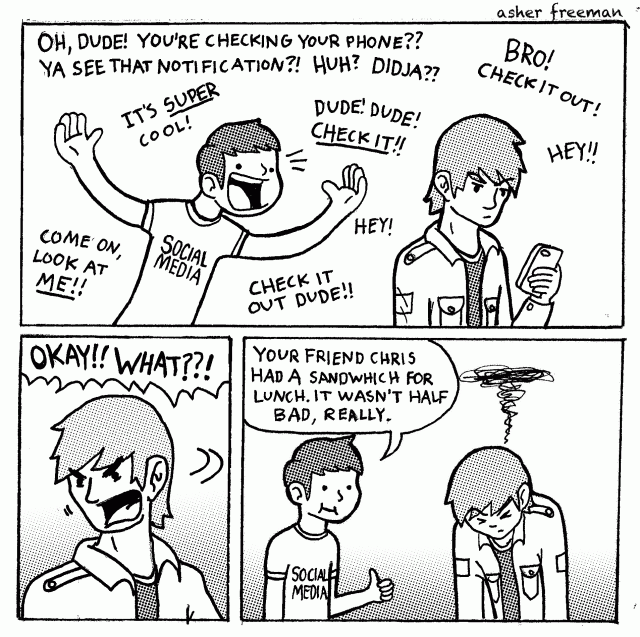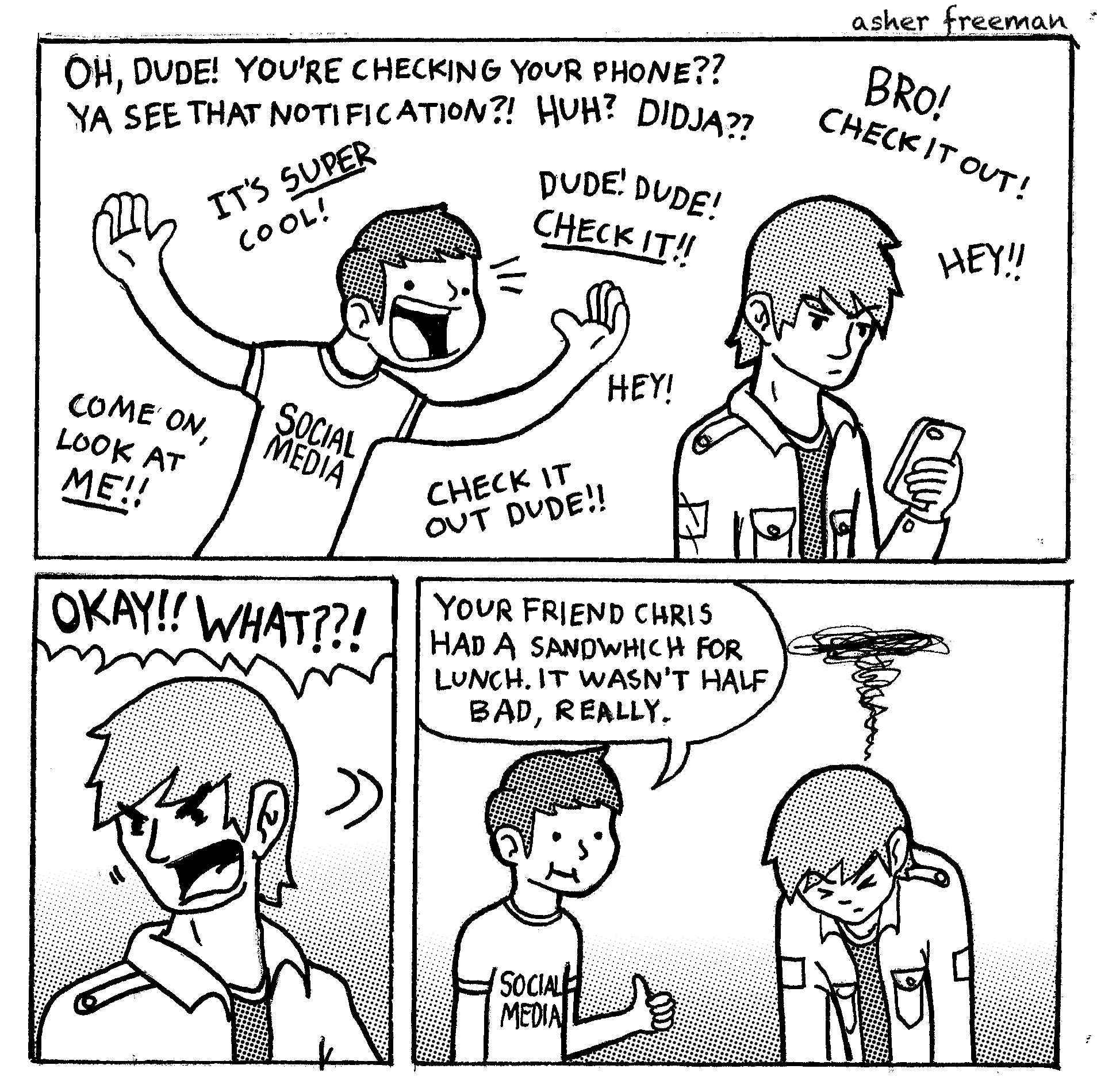
Fellow students, we all remember a time when we checked Facebook five times a day, each time taking 30-45 minutes scrolling through other people’s statuses and photos. Some of us have proudly narrowed that down to two times a day now. And only for about 10 minutes each (hopefully).
However, let us be honest with ourselves. Even though Facebook has slowed its role and MySpace has long since been a thing of the past, take note of how deeply these social media outlets have influenced our real lives.
Think about how many waking hours we’ve wasted in making sure our voices are heard in one way or another.
Think of how often you’ve let a YouTube video shape your perceptions of something without questioning it later. And it’s been said enough already that social media sites like Facebook and Twitter oftentimes leave greater instances of misunderstanding between parties and create false relationships.
There are obvious answers to why social media has gained prominence, front-and-center, in everyone’s lives. We live in the Information Age. Since the first telegraph message flew silently across the ocean to the invention of the Internet, social media has been necessary to keep up with everyone else.
In this burgeoning population boom, we all feel the need to be heard among the masses. We come together in a faceless, formless gathering online, to make our mark on immortality and forget the world around us. And granted, some social media sites give us easier access to things we don’t encounter in everyday life. But the same could be said for television, and the Internet in general.
Does it really take 12 different sites that all do essentially the same thing to connect us to the outside world?
Maybe this question is over-asked. It probably is. Maybe that’s because it has been ignored for so long. It’s not even one question, it’s several.
We all know that social media has taken over human communication. Some would say it’s the only way of communicating effectively.
But when did Facebook gain the power in our minds to determine whether a relationship is “official” or not?
Why is it that most of us have little or no chance of finding a job after college if we don’t have an online portfolio full of bells and whistles, a LinkedIn profile or a resume posted on Craigslist (hopefully we’re not that desperate yet?)
Whatever happened to talking to people face-to-face?
Even now this editorial is going to appear online with 10 to 15 different icons below it, all of them reminding you of the irreversible turn our society has taken.
Whether it be for good or bad, we should all take a second look at our real lives and see how they’re doing. Count how many friends you really talk to on an average day. Not acquaintances. Friends.
It’s almost as if Ray Bradbury’s world in “Fahrenheit 451” has come true — minus the book burnings (and even that’s only half wrong).
As a reader you may be thinking, “These ideals and principles are all well and good, but what do you want us to do?”
And, dear reader, you are right.
There is no avoiding social media, nor should there be.
As a society we must reel ourselves in. Ask yourself, do you really need to tell everyone where you are or what you’re eating on Twitter every day? Should you really have watched that video of pandas playing on a slide for 20 minutes straight?
We at the Lariat are guilty. Now it’s time to admit your guilt.
We call for prudence. We call for discernment. But most of all, we call for an end to the pictures of coffee as people’s statuses.
Really, think of the children.





